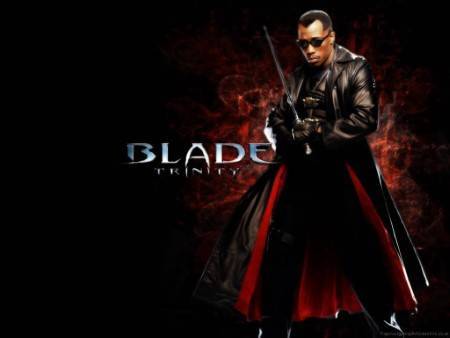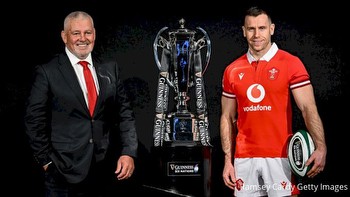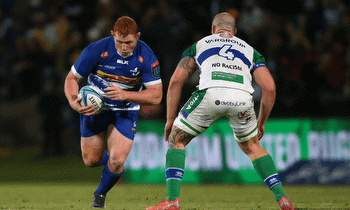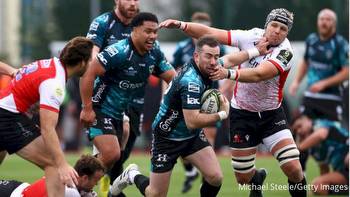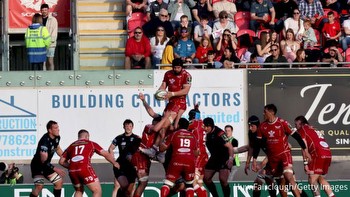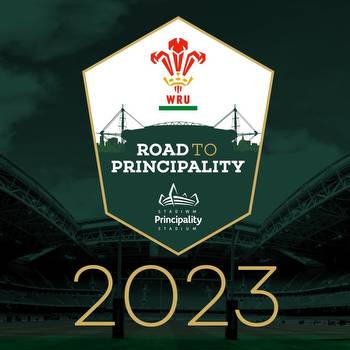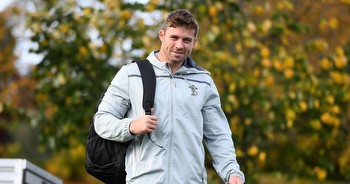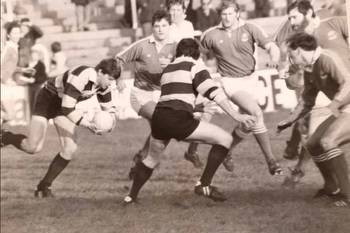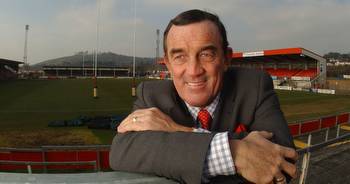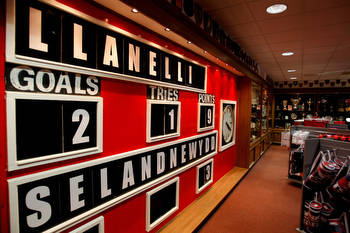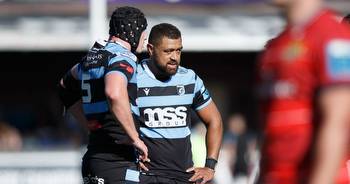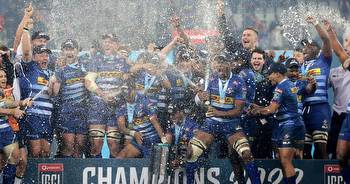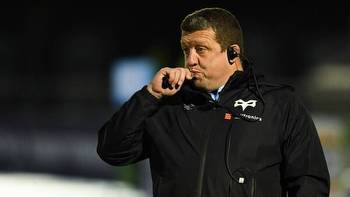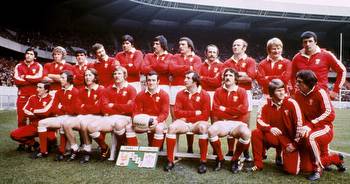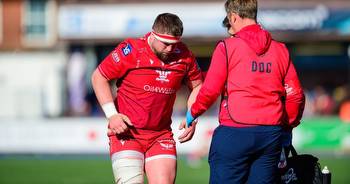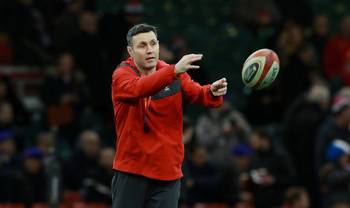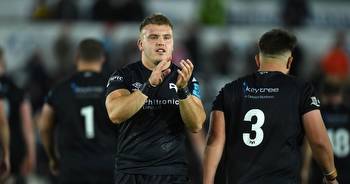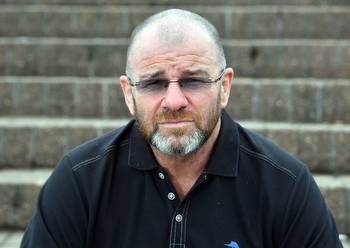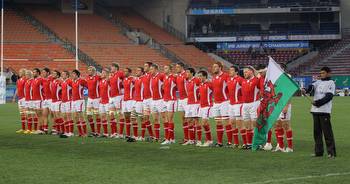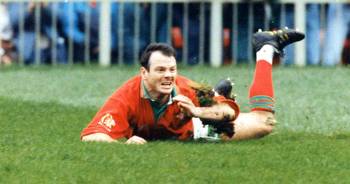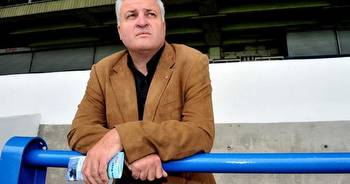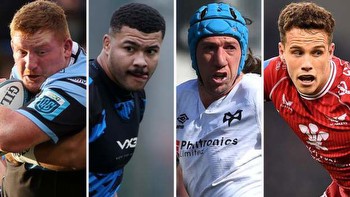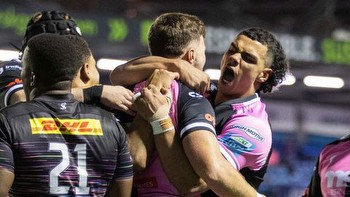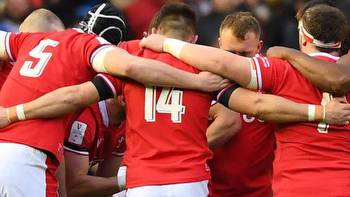Donal Lenihan: Weeping in the Welsh valleys
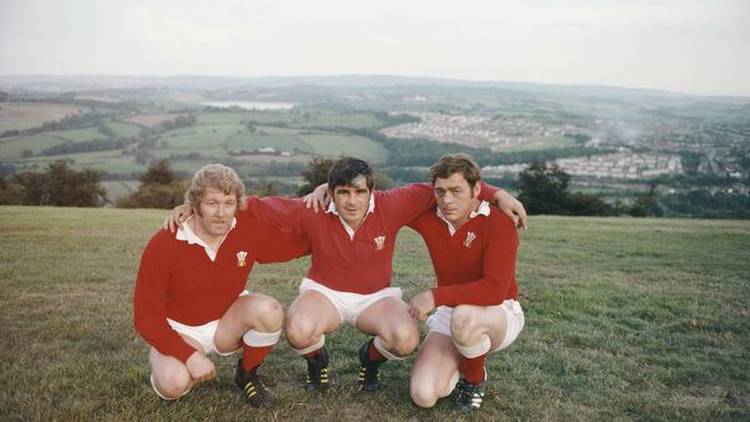
When you see how fractious things are getting in Wales at present, it makes Ireland’s achievement in rising to the top of rugby’s world rankings even more noteworthy.
With proper governance and leadership, Welsh rugby could be where we are now. After all rugby is the national sport in Wales. What the GAA represents in every town and village in Ireland is the status rugby enjoyed throughout the Welsh valleys for decades.
The national mood is frequently set by the performance of the Welsh side. The nation purred in the reflected glory associated with its all-conquering side from the 1970’s and the contribution made to the historic test-winning British and Irish Lions touring sides to New Zealand and South Africa in 1971 and 1974.
The names are iconic. Gerald Davies, JPR and JJ Williams, Phil Bennett, Barry John and, perhaps the greatest of them all, Gareth Edwards. And they were just the backs. So good were they, world class forwards like No 8 Mervyn Davies and second row Delme Thomas barely warranted a mention.
The first time I got to don an Irish jersey was for the Irish Schools side against our Welsh counterparts at Lansdowne Road in 1977. Welsh rugby was at the height of its powers. There was an aura about the jersey that, I suspect, contributed to our narrow defeat that day. They were the All Blacks of our time.
It's easy to recall the post-match reception when, on completion of the dinner, the Welsh squad stood in unison and sung the popular Beach Boys number “Sloop John B” with choir-like precision, in perfect harmony. We barely knew each other's names. I began to think “was there anything they couldn’t do..?”
We should have beaten them that day. I thought we had better players but didn’t possess their confident swagger. My suspicions were well founded in the years that followed when our captain that day, Hugo McNeill, fellow backs Kenny Hooks and Paul Dean along with myself, my second row partner Brian McCall, Philip Matthews and Nigel Carr (who missed that game due to injury), all went on to be capped for Ireland. From memory I don’t think any of our Welsh counterparts played for the full Welsh side.
Welsh club rugby attracted massive crowds every weekend. Afterwards, I played against Cardiff on numerous occasions for Munster and the Barbarians. The back field at the famous Arms Park was always bursting to capacity for those games as was Swansea’s St. Helen’s when the Babas were in town for the famous Easter tour.
Munster also had early season 'friendly fixtures' against the great Pontypool side of that era, and against Llanelli as they were before the creation of the Scarlets. I can say from experience that there was absolutely nothing friendly about playing Pontypool on a Wednesday night in Pontypool Park.
They were top of the pile in Welsh club rugby at the time. We had a decent Munster side, in preparation for the interpro championship. One game in particular stands out. We had the audacity to be leading at half time in a cracking game but butchered a gilt-edged scoring opportunity to put the game to bed.
Coinciding with that crucial moment, Ponty sprung Graham Price, part of the legendary Pontypool, Wales and Lions front row along with Charlie Faulkner (who sadly passed away last week), and hooker Bobby Windsor, off the bench. Pricey was serving a period of suspension but, technically, his ban expired at half time in our game.
Quite how that enabled him take a place on the bench from the outset would hardly satisfy a judicial panel today but, given it was a 'friendly', the rules were flexible. A Lion in 1977, 1980 and 1983, Pricy sprinted onto the field to a massive roar from the home crowd. We had played together on the 1983 tour of New Zealand and he winked at me as we came together at the next line out.
That wasn’t a problem. I couldn’t say the same for the scrum that followed as Pontypool stepped on the gas. All of a sudden, we were in trouble. Pricey, working in tandem with fellow 1983 Lions loose head prop Staff Jones, was coming to the end of his remarkable career but was still a very disruptive tight head. From a position of strength, we lost narrowly.
Pontypool had a serious pack back then, tough men who didn’t stand on ceremony, apart from their No 8, the late, great BBC commentator and journalist Eddie Butler. Eddie was a gentleman, a Cambridge University blue, which was a bit of a rarity in Pontypool back then.
Years later, I remember asking him on a night out how he ended up there, rather than down the road at the more fashionable Cardiff set up. “Very easy decision, Donal”, he smiled. “I reckoned it was far safer to play with them than against them”.
Indeed.
The post-match reception after that game was hosted in the local pub at the entrance to the public park where Ponty played. The speeches were brief. I was captain of Munster in those days and had prepared my few words. Their captain, a rough back row diamond by the name of Chris Huish, got to his feet first.
It was customary to present your club tie to the opposition captain back then and, in anticipation, Munster’s great old team secretary, Highfield’s Ralph Murphy, had already supplied me with a Munster players tie for the host captain.
Huish’s speech was rich in colour if brief in detail - - “From one old c**t to another old c**t”, as he pressed a Pontypool tie into my hand and sat down. Queue a big round of applause from the locals. That was it. Suffice to say, I slipped my notes into my pocket and responded with matching brevity, if in slightly less colourful tones.
Immediately following the presentations, a middle-aged Pontypool supporter, impeccably dressed in a suit, approached me, said he had admired me for years, slipped a wad of sterling notes in my hand and told me to buy a few drinks for the lads.
I couldn’t believe it. Free adidas boots and a bit of nice leisure gear was the extent of our perks in those days. I always suspected that things were different in Wales but, who was I to complain as we were set up nicely for a great night.
How Welsh rugby would welcome those heady days right now. The regions are in disarray. Nobody supports them in anything like the numbers they attracted in the amateur days. Traditional clubs like Bridgend, Pontypridd, Aberavon, Ebbw Vale, Swansea, Newport and Llanelli often attract bigger crowds for Premiership league games than their professional neighbours.
The fact that players in the Welsh squad preparing to face England this weekend had to threaten strike action in order to get some clarity on their financial futures with over 70 players - spread across the Dragons, Cardiff, Scarlets and Ospreys - out of contract by the end of the season, is mind boggling.
I don’t blame the players one iota for the stance they’ve been forced into. The WRU are set to make over £10 million sterling from hosting England at the Principality Stadium on Saturday, yet those taking centre stage don’t even know if they will have a job in a few months.
When one regular Welsh starter revealed last week that he is on anti-depressants in order to cope with the uncertainty surrounding his future, you have to wonder how the WRU has got it so wrong.
Given our playing strength and solid foundations, it’s hard to fathom how Wales won two Six Nations titles since our last success, under Joe Schmidt, in 2018. If anything, all the successes in 2019 and 2021 did was paper over the cracks with the uncompetitive nature of the regions across the URC - all four are in the bottom half of the league at present - and Europe a more realistic gauge of the state of the game.
Rugby in Ireland is at an all-time high. Unfortunately the same can’t be said for our Welsh neighbours. Apart from the Welsh, English Gallagher Premiership clubs Wasps and Worcester Warriors have already fallen on their swords this season while the league’s best-supported club, Leicester Tigers, needed a cash injection of £13m from their owners last week to avoid becoming the third Premiership club going into administration this season.
That doesn’t augur well for a professional sport, still in its relative infancy, and with a journey to travel in order to secure its long-term future. After all, there’s not much point in us having four proud provinces if we’ve nobody to play against.
